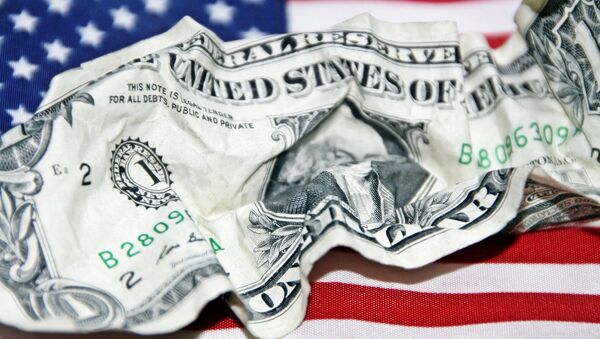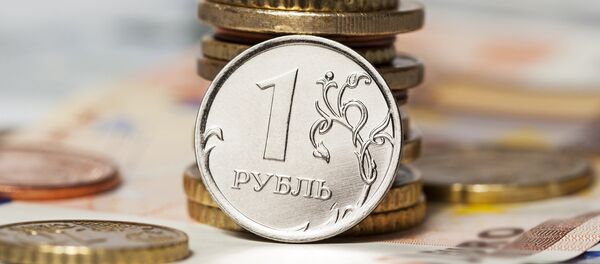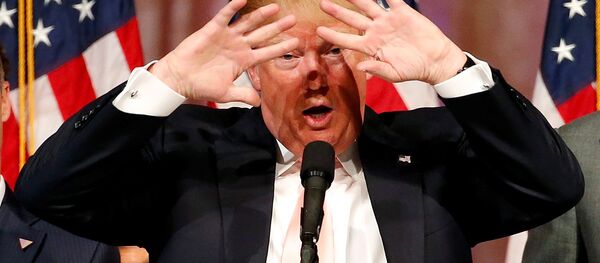Kristian Rouz — After the significantly appreciated dollar hit US corporate earnings in the second half of 2015, the tendency might now be about to reverse: the US currency is sagging gradually amidst the Federal Reserve' dovish sentiment towards monetary policies, whilst the looming risk of an overall recession in the US has fended off dollar bulls from buying bets. Currency market speculators started abandoning net buying positions in early April, contributing to the slide of the greenbacks FX rate against its major peers.
In early April, considering the increasing risks of the US's economic stability, hedge funds started dumping dollars. Consequently, the Bloomberg Dollar Spot Index, having dropped 3.9% in March amidst the Fed decision to leave base interest rates unchanged, accelerated its decline. The dollar posted its biggest one-month slide since 2010, whilst US companies' earnings deteriorated the most since 2011.
"We're definitely near the end for the dollar bull run if we have not already seen the peak," Brendan Murphy of Standish Mellon Asset Management Co. in Boston, MA. "We're clearly in this topping-out process."
The deteriorating situation in the corporate sector is starting to have its negative effect on the broader US economy. The non-financial sector is having its worst period since 1998, with companies with little to no international exposure suffering losses. According to Datastream, US pretax domestic non-financial profits are declining at their fastest pace since Q2 1998 at this point, with business investment, after grinding flat earlier this year, declining now as well. The excessive presence of the US government in the economy, including both tougher regulations and direct investment interventionism, might be to blame along with negative FX rate spillovers.
"My own observation has led me to the conclusion that when whole-economy profits begin to fall sharply, this is usually followed shortly after by the overall economy tipping over into recession, driven by the volatile business investment cycle," Albert Edwards of Societe Generale wrote in a note to investors.
The current decline of the dollar's FX rate might help improve the situation for US corporations' overseas earnings, allowing them to narrowly avoid the looming recession.
"This is a key point, as the dollar could not sustain its gains even with a normal hiking cycle, let alone now with anticipation of an even more gradual one," said Vasileios Gkionakis of the London-based UniCredit.
The overvalued US stock market is another concern stirring recession fears. Currently, US shares cost 17-18 times more than corporate earning of the past 12 months due to enormous influx of capital in the recent months in particular. Cyclical factors indicate such a situation signals an inevitable recession: price-to-earnings ratios are high during a recession, and are more balanced during a recovery phase. Therefore, US markets are eyeing selloffs, currency trading no exception.





